-
740k
Number of garment and footwear workers in Cambodia.
-
$9.5b
Value of Cambodia's textile and footwear industry.
-
$230
Minimum wage for industry workers from next year.
WORLD FOCUS
Hanging by a thread: Spotlight on Cambodia's garment sector
Will Cambodia's valuable garment sector pay a price for the country's political crackdown?
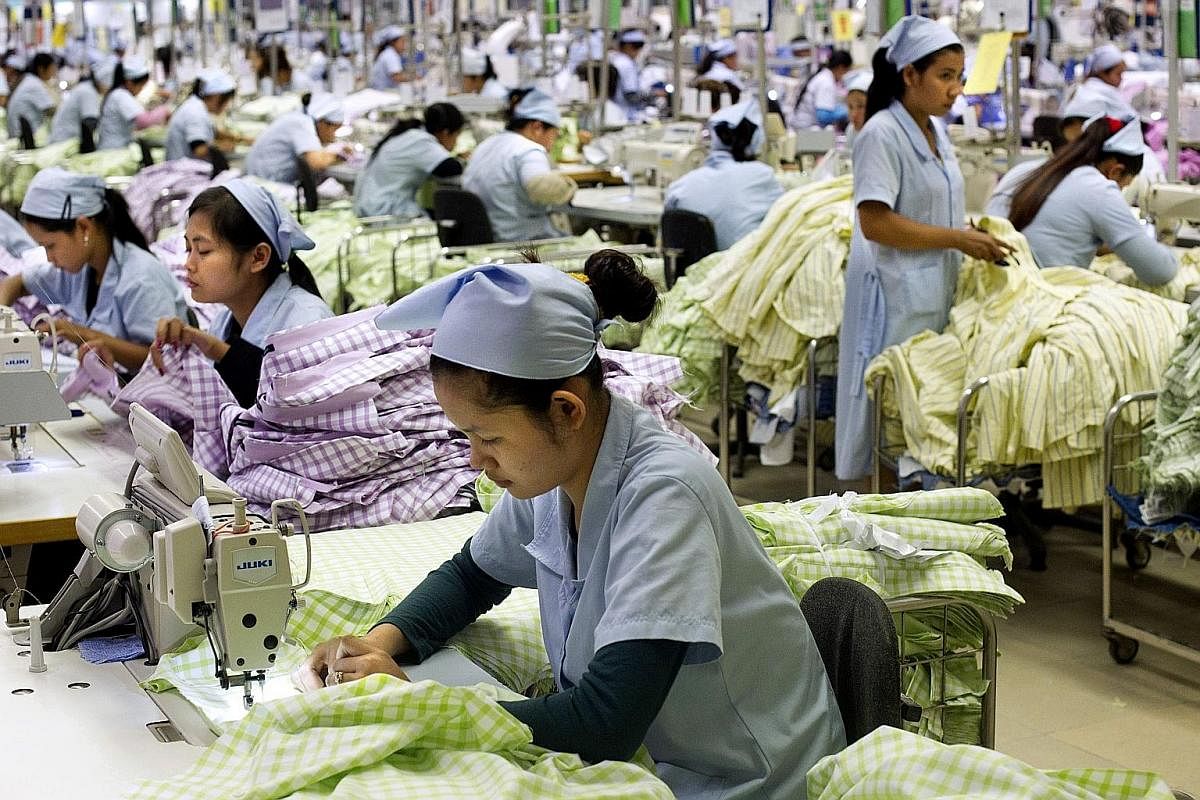
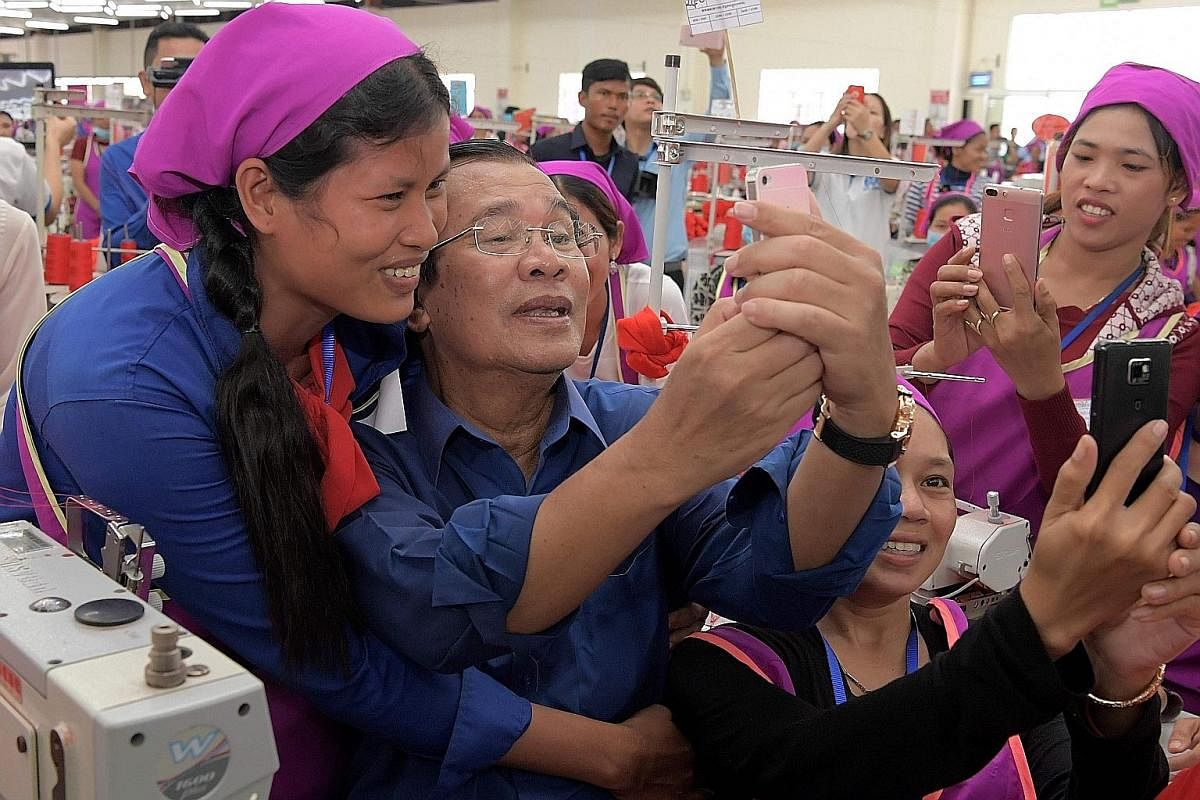
concerted effort by the ruling party to woo workers in the industry. PHOTO: AGENCE FRANCE-PRESSE
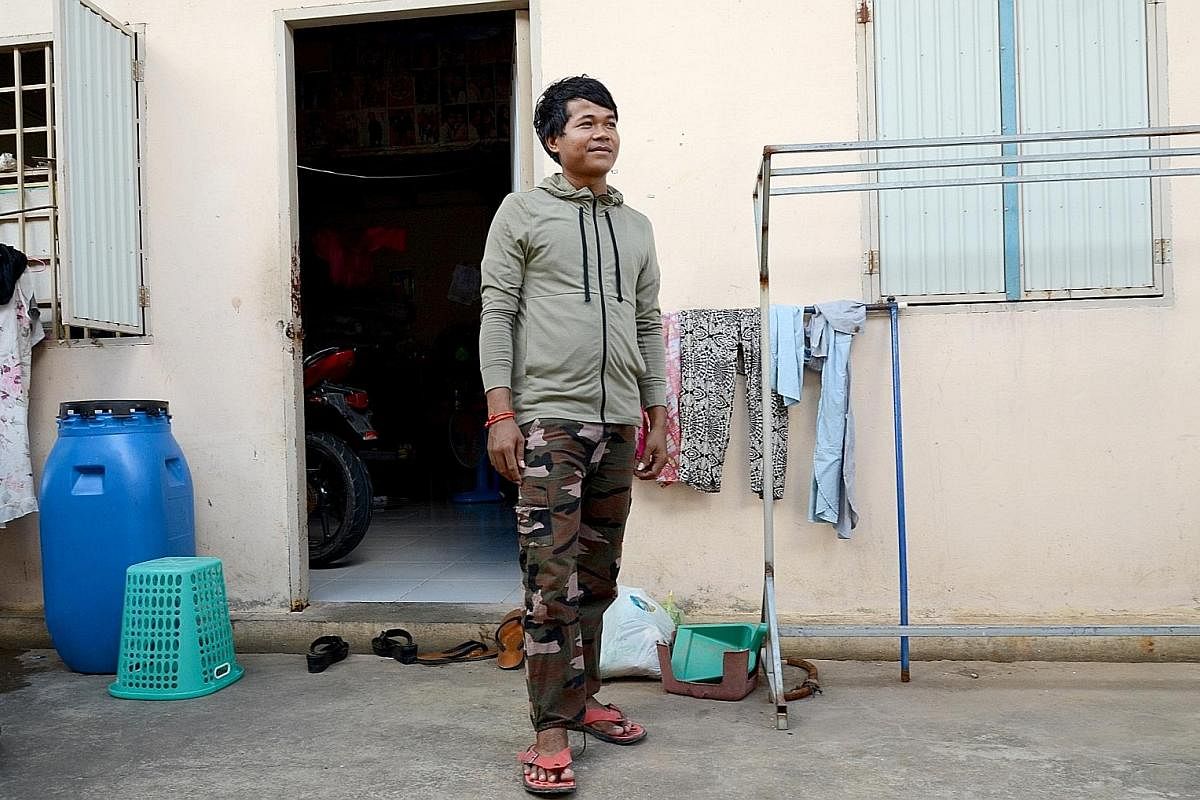
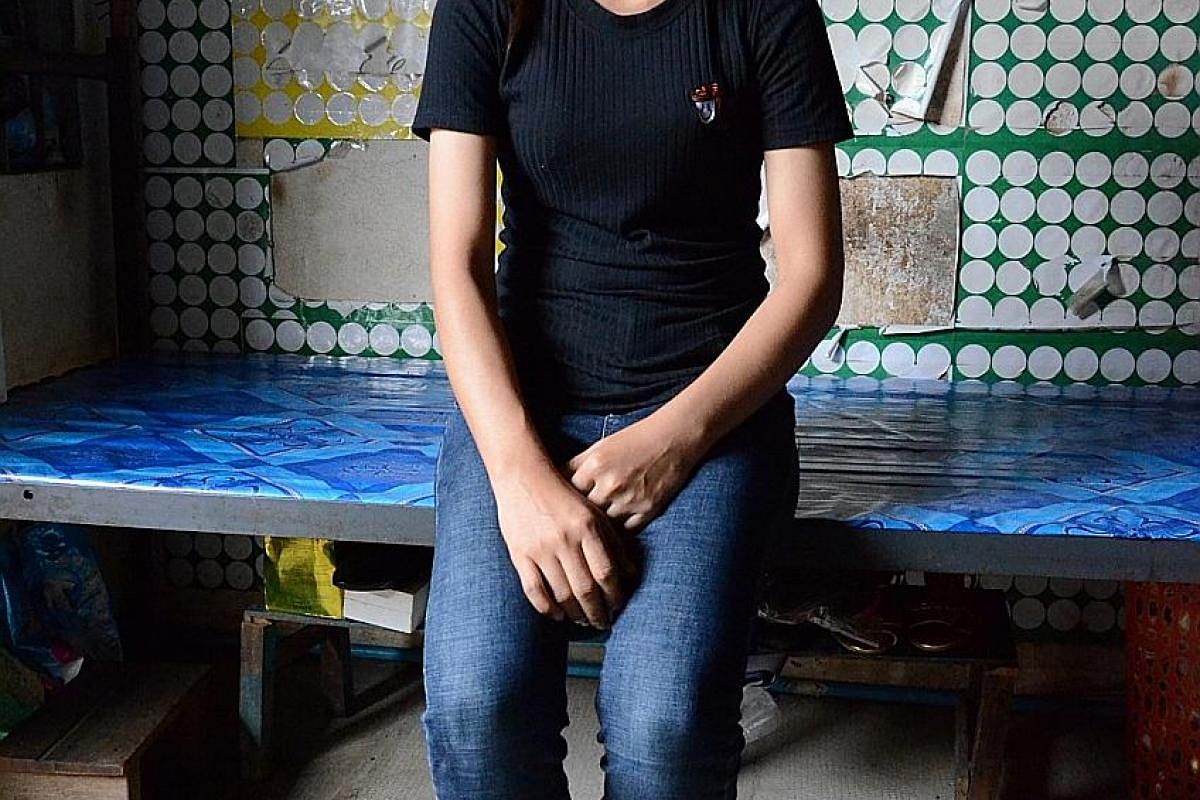
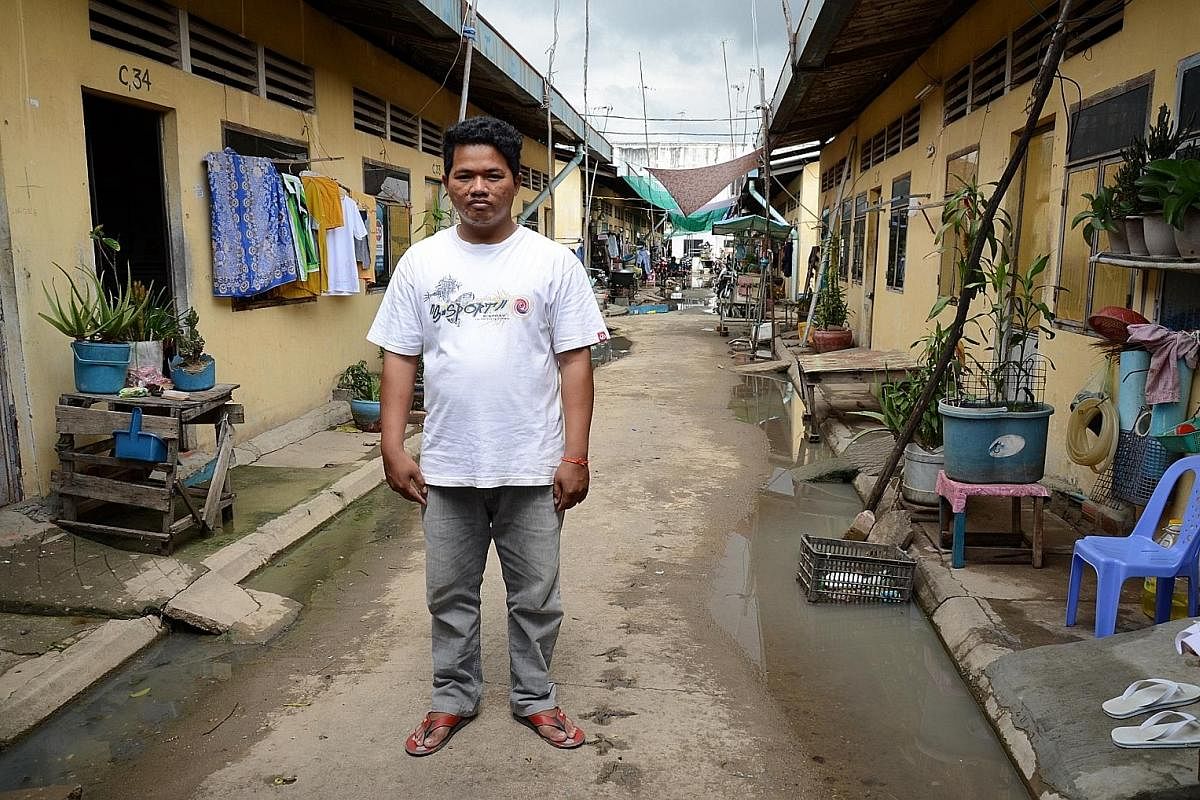
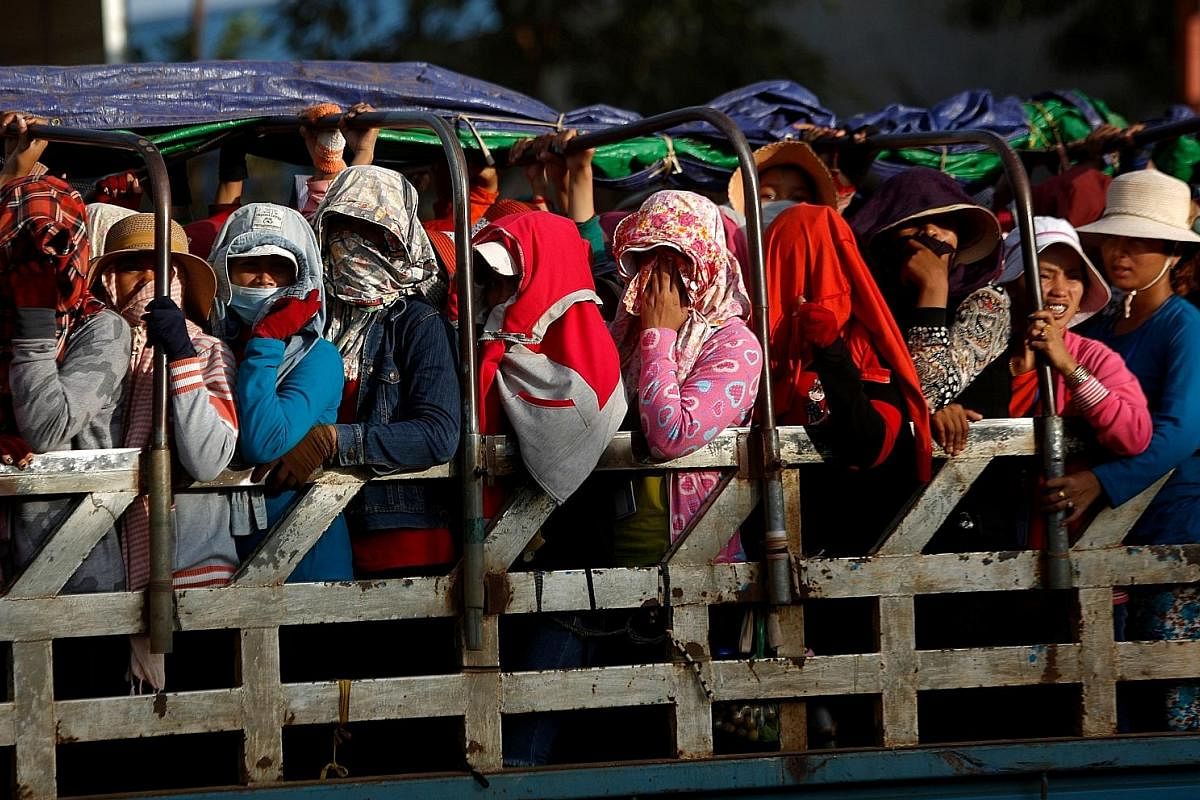
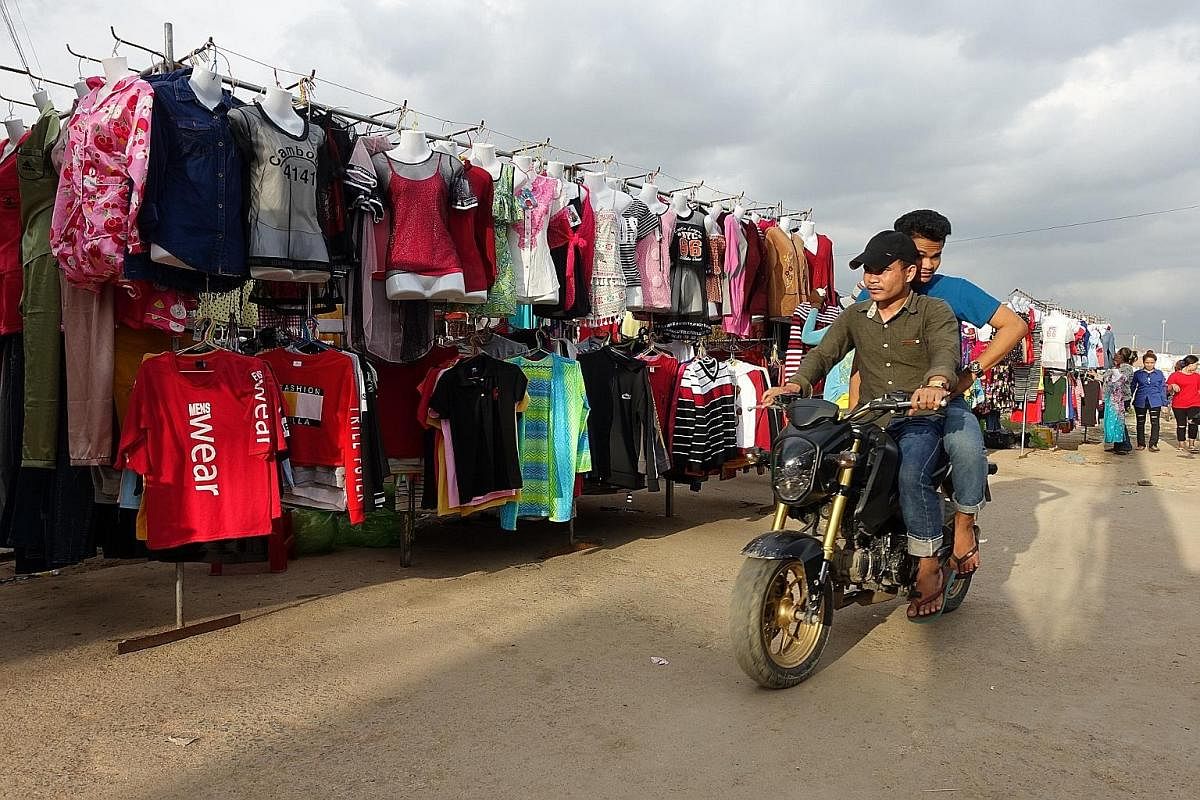
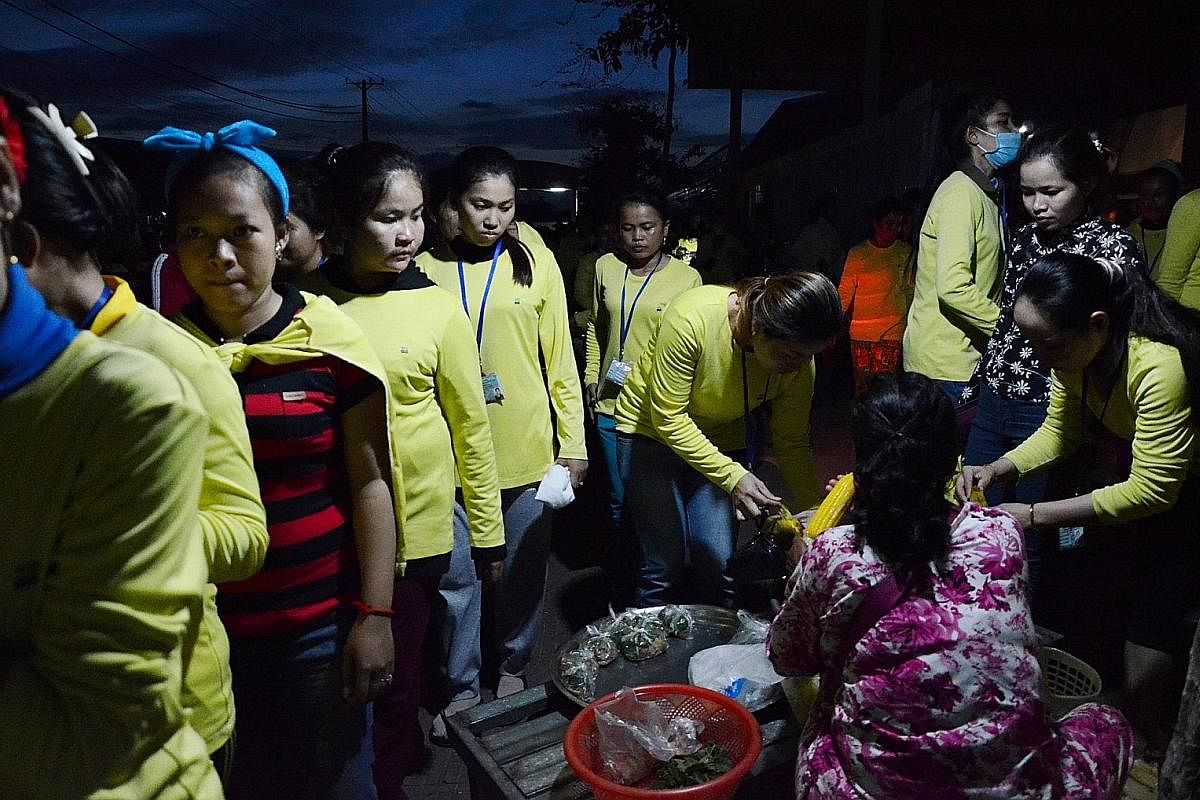
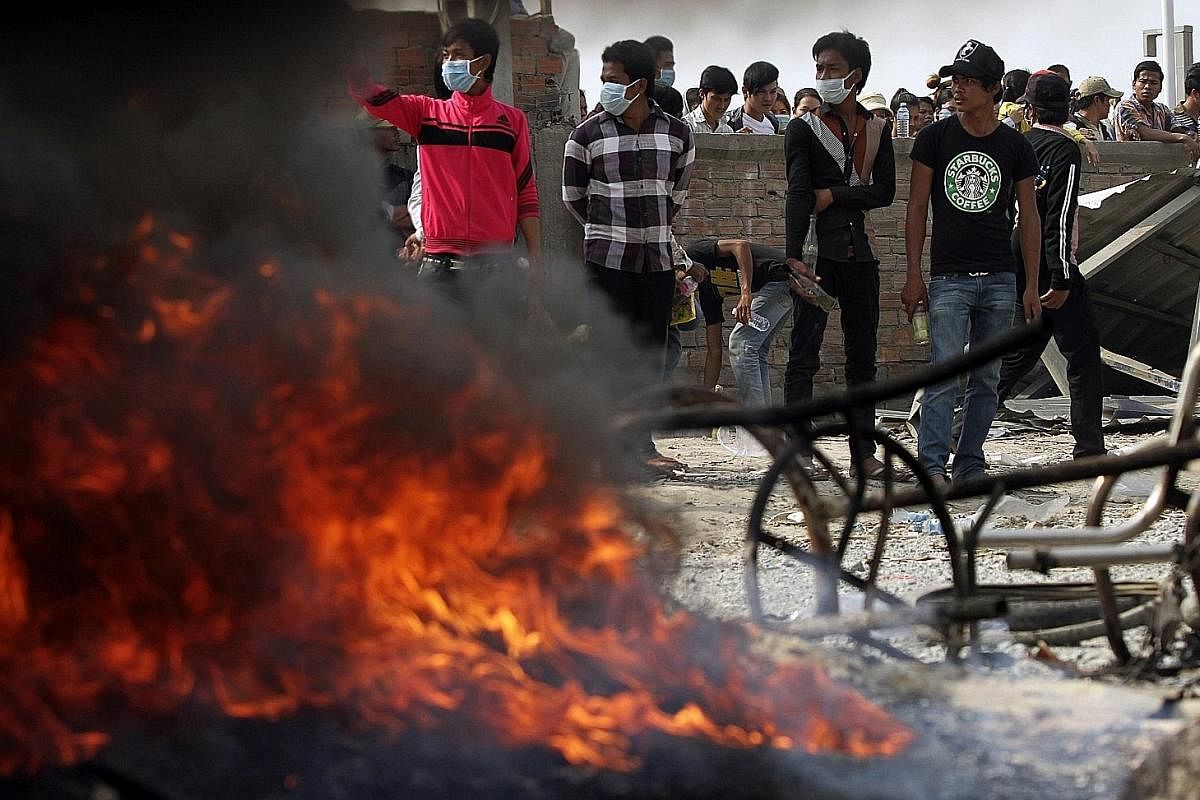
It was lunchtime at the Phnom Penh factory when a commotion broke out at the gate. Prime Minister Hun Sen had arrived.
He was mobbed by garment workers like Ms Bot Saiya, who held out her cellphone to snap a picture of herself with the most powerful man in Cambodia.
"I had seen photos that people took with him on Facebook, and imagined what it would be like to meet him," she told The Straits Times. "My dream came true."
With seven months to go before Cambodia's general election, its US$7 billion (S$9.5 billion) garment and footwear industry has come under the spotlight and, some workers feel, under threat.
The industry is a powerful political force and major source of employment. But it is also in the crosshairs of foreign governments critical of Cambodia's crackdown on political dissent, with threats of possible economic penalties that could hurt the sector.
Since August, the Cambodian authorities have shuttered critical media outlets, detained opposition leader Kem Sokha for treason, dissolved his Cambodia National Rescue Party (CNRP) and redistributed its parliamentary seats. They have also arrested journalists for espionage, and put officials on alert for those fomenting a "colour revolution".
The crackdown has taken place alongside a concerted effort by the ruling party to woo Cambodia's 740,000 garment and footwear workers, who power the biggest economic engine of the country.
Analysts say their role as breadwinners for rural households also gives them outsized influence among the 8.3 million registered voters. Mr Hun Sen has been visiting factories twice a week to meet workers and managers.
In the turbulent aftermath of the 2013 election, where the CNRP stunned the Cambodian People's Party by shrinking its parliamentary majority from 90 seats out of 123 to 68, striking workers joined opposition supporters in demanding the government double its monthly minimum wage to US$160. At least four people were shot dead when a protest turned violent in 2014.
While the demand was not met, the minimum wage has been raised every year since. After the latest round of wage negotiations, the government announced in October that the wage would increase from US$153 to US$170 (S$230) in January next year - with the state picking up the tab for US$5 of that hike. Employers will have to pay full contributions to their workers into the National Social Security Fund, as opposed to the 50 per cent they currently foot.
Bangladesh, the world's second-largest exporter of garments after China, has a minimum wage less than half of Cambodia's. Manufacturers are worried.
"We have raised the minimum wage 11 per cent for the next year. In Vietnam, it was 6.5 per cent," Mr Ken Loo, the secretary-general of the Garment Manufacturers Association in Cambodia, pointed out. "But we understand it is an election year."
Cambodia makes anything from sneakers to shirts bearing global brands, such as Marks & Spencer, H&M and Adidas, which are exported to the US and EU under preferential terms offered to poorer countries. While the sector is projected to expand by 6 per cent in export value by the end of the year, some 15,000 to 20,000 jobs were lost last year because of factory closures, Mr Loo said.
In a peach-coloured dormitory block in Phnom Penh's Dankao district, the youthful migrants are wary of revealing their political affiliation even as they leave a picture of Kem Sokha taped to the wall. Yet they are proud of their political and economic clout.
Mr Vun Mab, a baby-faced, 28-year-old father of two from Prey Veng province, declared: "Without garment workers, we wouldn't have seen this much progress."
Uncertainty now cloaks his future. Shortly after the Supreme Court ordered the CNRP dissolved last month, the European Union, which accounted for about 40 per cent of Cambodia's exports last year, issued a statement that implied sanctions were possible.
"Respect of fundamental human rights is a prerequisite for Cambodia to continue to benefit from the EU's preferential Everything But Arms scheme," the statement said, referring to the duty-free and quota-free access for all Cambodian exports except arms.
And just last week, the United States said it would restrict entry to people involved in the Cambodian government's actions to undermine democracy, including the dissolution of the country's main opposition party and imprisonment of its leader.
The visa sanctions are the toughest steps by any Western country since a crackdown on critics of Mr Hun Sen, Reuters reported.
Mr Yi Ratha, who spends his days gluing soles to sneakers for US$179 a month, fears for his job.
"The international community will use the garment industry to press the country to respect the rule of law," he said. "And the parties most affected will be the poorest people, not the wealthy."
In the meantime, Mr Hun Sen is keeping up with his factory visits as he seeks to extend his 33-year premiership.
In a speech broadcast live on Facebook, he interspersed wisecracks about his loose trousers with impassioned pleas about peace and stability. "If there is no peace, you won't be able to work here!" the Prime Minister said, reminding workers about Cambodia's genocidal past under the Khmer Rouge regime.
"We won't allow the poisonous people to destroy the safety, peace and stability of our development… We won't give you any opportunity."
Workers like Ms Chon Kimly, while looking forward to meeting Mr Hun Sen, are patiently waiting for their turn at the ballot box.
"I am a good citizen", she said quietly. "No matter how busy I am, I don't forget to vote."
Hard life
Even as the industry wields considerable political power via its strength in voting numbers, the lot of Cambodia's garment workers is not an easy one.
Workers protested after the 2013 election, joining opposition supporters in demanding that the government double the monthly minimum wage to US$160. At least four people were shot dead when military police opened fire on a crowd in an attempt to quell a protest that had turned violent in 2014.
Join ST's Telegram channel and get the latest breaking news delivered to you.
A version of this article appeared in the print edition of The Straits Times on December 12, 2017, with the headline Hanging by a thread: Spotlight on Cambodia's garment sector. Subscribe
